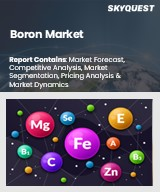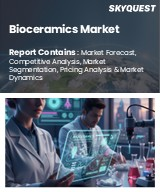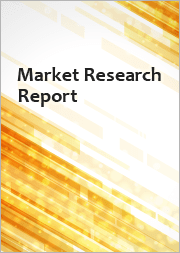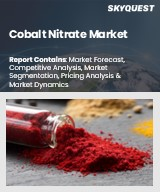
|
시장보고서
상품코드
1530556
세라믹 시장 규모, 점유율, 동향 분석 보고서 : 제품별, 용도별, 최종 용도별, 지역별, 부문별 예측(2024-2030년)Ceramics Market Size, Share & Trends Analysis Report By Product (Traditional, Advanced), By Application (Abrasives, Tiles), By End-use (Industrial, Medical), By Region, And Segment Forecasts, 2024 - 2030 |
||||||
세라믹 시장의 성장과 동향 :
Grand View Research, Inc.의 새로운 리포트에 따르면 세계의 세라믹 시장 규모는 2024-2030년 CAGR 5.6%로 추이하며, 2030년에는 3,593억 5,000만 달러에 달할 것으로 예측됩니다.
세라믹은 비금속 또는 점토와 같은 무기 재료를 매우 높은 온도에서 소성하여 형태를 부여함으로써 제조되는 부서지기 쉽고, 단단하며, 내식성, 내열성을 가진 수많은 재료 중 하나입니다. 제품에 따라 시장은 전통적 제품과 첨단 제품으로 나뉩니다.
첨단 세라믹은 산화물 또는 비산화물의 조합 또는 두 가지의 조합을 통해 형성됩니다. 절연성, 자기성, 전도성, 투자율이 특징이며, 국방, 항공, 전자, 의료 등 다양한 산업에서 다양한 용도로 사용되고 있습니다.
용도별로는 타일이 세계 시장을 장악하고 있습니다. 전 세계에서 건설 활동의 성장은 매력적인 외관과 저렴한 가격으로 인해 실내 장식용 타일에 대한 수요를 촉진하고 있습니다. 타일은 일반적으로 적토 또는 백토와 다른 재료의 조합으로 만들어지며 유약이 칠해져 있습니다. 이 유약은 타일의 인장 강도를 높이고 색상과 패턴을 표현하는 데 도움이 됩니다.
지역별로는 아시아태평양이 2022년 시장에서 가장 큰 매출 점유율을 차지할 것으로 예상되며, 이러한 추세는 예측 기간 중 지속될 것으로 보입니다. 이 지역에서는 지붕 타일, 미술품, 식기류에 대한 수요가 증가하고 있으며, 이는 이 지역의 제품 수요를 증가시키고 있습니다. 또한 아시아태평양은 도자기 생산에 있어서도 큰 비중을 차지하고 있습니다. 도자기는 일본과 중국 등지에서 문화적으로 중요하며, 예배당 제단이나 다도 등 종교적, 의례적 활동에 사용됩니다.
세계 도자기 시장 특징은 여러 제조 기업이 존재하고 최종 사용 기업이 세계 시장에 집중되어 있다는 점입니다. 이 유명한 제조업체들은 제품의 품질과 가격을 기준으로 서로 경쟁하고 있습니다. 중국, 인도 등 아시아 국가들은 세계 최고의 도자기 및 관련 제품 수출국입니다.
세라믹 시장 보고서 하이라이트
- 전통 도자기가 2023년 56% 이상의 최대 매출 점유율을 차지합니다. "뉴사우스웨일스대학교(UNSW)에 따르면 전통 도자기는 실리카(석영), 점토, 장석 등 세 가지 기본 재료 또는 화합물로 구성됩니다.
- 타일은 전 세계 세라믹 시장에서 48% 이상으로 가장 큰 점유율을 차지하고 있습니다. 주로 욕실이나 주방 이외의 새로운 용도에 대응하기 위해 주거 공간의 벽 타일 패턴에 대한 수요가 매우 큽니다. 복도, 로비, 침실 등 현대식 주거 공간에서 세라믹 벽 타일이 사용되고 있습니다.
- 위생도기는 시장의 또 다른 주요 용도로 예측 기간 중 CAGR 5.3%로 확대될 것으로 예상됩니다.
- 의료용은 예측 기간 중 6.1%의 가장 빠른 성장률을 나타낼 것으로 예상됩니다. 의료용 최종 용도 부문의 성장은 세라믹의 무기 및 비금속 성분에 기인합니다.
- 북미 세라믹 시장은 예측 기간 중 4.4%의 연평균 복합 성장률(CAGR)을 나타낼 것으로 예상됩니다.
- 아시아태평양의 세라믹 시장은 2023년 40% 이상의 점유율을 차지하며 시장을 장악했습니다. 이러한 높은 점유율은 신흥 경제국의 제조업이 빠르게 성장하고 있기 때문입니다.
목차
제1장 조사 방법과 범위
제2장 개요
제3장 세라믹 시장 변수, 동향, 범위
- 세계의 세라믹 시장 전망
- 업계 밸류체인 분석
- 원재료 동향
- 판매채널 분석
- 테크놀러지의 개요
- 규제 프레임워크
- 시장 역학
- 시장 성장 촉진요인 분석
- 시장 성장 억제요인 분석
- 업계 동향
- ESG 분석
- 무역 전망
- Porter's Five Forces 분석
- 공급업체의 힘
- 구매자 힘
- 대체의 위협
- 신규 진출의 위협
- 경쟁 기업 간 경쟁 관계
- PESTEL 분석
- 정치정세
- 경제정세
- 사회 상황
- 기술적 상황
- 환경 상황
- 법적인 상황
제4장 세라믹 시장 : 제품별 전망, 추정과 예측
- 세라믹 시장 : 제품별 변동 분석, 2023년 및 2030년
- 기존
- 첨단
제5장 세라믹 시장 : 용도별 전망, 추정과 예측
- 세라믹 시장 : 용도별 변동 분석, 2023년 및 2030년
- 위생도기
- 연마재
- 벽돌과 파이프
- 타일
- 도기
- 기타
제6장 세라믹 시장 : 최종 용도별 전망, 추정과 예측
- 세라믹 시장 : 최종 용도 변동 분석, 2023년 및 2030년
- 건축·건설
- 산업
- 의료
- 기타
제7장 세라믹 시장 : 지역별 전망, 추정과 예측
- 지역 스냅숏
- 세라믹 시장 : 지역별 변동 분석, 2023년 및 2030년
- 북미
- 시장 추산·예측, 2018-2030년
- 제품별, 2018-2030년
- 용도별, 2018-2030년
- 최종 용도별, 2018-2030년
- 미국
- 캐나다
- 멕시코
- 유럽
- 시장 추산·예측, 2018-2030년
- 제품별, 2018-2030년
- 용도별, 2018-2030년
- 최종 용도별, 2018-2030년
- 독일
- 영국
- 프랑스
- 스페인
- 터키
- 아시아태평양
- 시장 추산·예측, 2018-2030년
- 제품별, 2018-2030년
- 용도별, 2018-2030년
- 최종 용도별, 2018-2030년
- 중국
- 인도
- 일본
- 중남미
- 시장 추산·예측, 2018-2030년
- 제품별, 2018-2030년
- 용도별, 2018-2030년
- 최종 용도별, 2018-2030년
- 브라질
- 중동 및 아프리카
- 시장 추산·예측, 2018-2030년
- 제품별, 2018-2030년
- 용도별, 2018-2030년
- 최종 용도별, 2018-2030년
- GCC
제8장 경쟁 분석
- 주요 시장 참여 기업에 의한 최근 동향과 영향 분석
- 기업 분류
- 기업 시장 순위 분석
- 히트맵 분석
- 공급업체 에코시스템 지도제작
- 잠재적인 최종사용자 리스트
- 전략 지도제작
- 기업 개요/리스트
- AGC Ceramics Co. Ltd.
- 3M
- CoorsTek Inc.
- CeramTec
- Du-Co Ceramics Company
- RAK Ceramics
- Kajaria Ceramics
- Mohawk Industries Inc.
- Morgan Advanced Materials
- Saint Gobain
Ceramics Market Growth & Trends:
The global ceramics market size is anticipated to reach USD 359.35 billion by 2030, registering at a CAGR of 5.6% from 2024 to 2030, according to a new report by Grand View Research, Inc., Rising penetration of ceramics in medical and construction industries is anticipated to propel market growth in the forecast period. Ceramic is any of the numerous brittle, hard, corrosion-resistant, and heat-resistant materials that are manufactured by giving shape, followed by firing a non-metallic, or an inorganic material, such as clay, at a very high temperature. Based on product, the market is segmented into traditional and advanced.
The combination of oxides or non-oxides or the combination of both results in the formation of advanced ceramics. Insulation, magnetism, conduction, and permeability are the characteristics, which allow it to be used in a variety of applications in numerous industries such as defense, aviation, electronics, and medicine.
Based on applications, tiles dominate the global market. Worldwide, the growth in construction activities is propelling the demand for tiles in interior decor due to their attractive appearance and affordability. Tiles are typically created from a combination of red or white clay and other materials and are then glazed. This glaze gives the tile more tensile strength, color, and pattern.
Based on region, Asia Pacific held the largest revenue share of the market in 2022 and this trend is expected to continue over the forecast period. The increased demand for roof tiles, artware, and tableware in the region is boosting the product demand in the region. Furthermore, Asia Pacific also accounts for the large-scale presence of pottery manufacturing. Pottery ceramics has cultural importance in Japan, China, etc. as they are used in religious and ceremonial activities such as on the altars in places of worship, as well as in tea ceremonies, in these countries.
The global ceramics market is characterized by the presence of multiple manufacturing companies coupled with the concentration of end-use companies in the global market. These prominent manufacturers compete with each other on the basis of product quality and prices. Countries like China, India, and other Asia countries are some of the leading exporters of ceramic and related products in the world.
Ceramics Market Report Highlights:
- Traditional Ceramics held the largest revenue share of over 56% in 2023." According to the University of New South Wales (UNSW), traditional ceramics consist of three basic materials or compounds: silica (quartz), clay, and feldspar.
- Tiles held the largest share of over 48% of the global ceramics market. There is a huge demand for wall-tiling patterns in living spaces, mainly to cater to new application areas outside bathrooms and kitchens. Modern home application settings use ceramic wall tiles, including hallways, lobbies, and bedrooms.
- Sanitary ware is another key application segment of the market, which is anticipated to expand at a CAGR of 5.3% during the forecast period.
- Medical is anticipated to register the fastest growth rate of 6.1% during the forecast period. The growth of the medical end-use segment is attributed to ceramics' inorganic, non-metallic composition.
- The ceramics market in North America is anticipated to register a CAGR of 4.4% during the forecast period.
- The Asia Pacific ceramics market dominated the market with a share of above 40% in 2023. This large share is due to the rapidly expanding manufacturing sector in the region's developing economies.
Table of Contents
Chapter 1. Methodology and Scope
- 1.1. Market Segmentation & Scope
- 1.2. Market Definition
- 1.2.1. Information Procurement
- 1.2.2. Information Analysis
- 1.2.3. Market Formulation & Data Visualization
- 1.3. Data Validation & Publishing
- 1.4. Research Scope and Assumptions
- 1.4.1. List of Data Sources
Chapter 2. Executive Summary
- 2.1. Market Snapshot
- 2.2. Segmental Outlook
- 2.3. Competitive Outlook
Chapter 3. Ceramics Market Variables, Trends & Scope
- 3.1. Global Ceramics Market Outlook
- 3.2. Industry Value Chain Analysis
- 3.2.1. Raw Material Trends
- 3.2.2. Sales Channel Analysis
- 3.3. Technology Overview
- 3.4. Regulatory Framework
- 3.5. Market Dynamics
- 3.5.1. Market Driver Analysis
- 3.5.2. Market Restraint Analysis
- 3.6. Industry Trends
- 3.6.1. ESG Analysis
- 3.6.2. Trade Outlook
- 3.7. Porter's Five Forces Analysis
- 3.7.1. Supplier Power
- 3.7.2. Buyer Power
- 3.7.3. Substitution Threat
- 3.7.4. Threat from New Entrant
- 3.7.5. Competitive Rivalry
- 3.8. PESTEL Analysis
- 3.8.1. Political Landscape
- 3.8.2. Economic Landscape
- 3.8.3. Social Landscape
- 3.8.4. Technological Landscape
- 3.8.5. Environmental Landscape
- 3.8.6. Legal Landscape
Chapter 4. Ceramics Market: Product Outlook Estimates & Forecasts
- 4.1. Ceramics Market: Product Movement Analysis, 2023 & 2030
- 4.2. Traditional
- 4.2.1. Market estimates and forecast, 2018 - 2030 (USD Million)
- 4.3. Advanced
- 4.3.1. Market estimates and forecast, 2018 - 2030 (USD Million)
Chapter 5. Ceramics Market: Application Outlook Estimates & Forecasts
- 5.1. Ceramics Market: Application Movement Analysis, 2023 & 2030
- 5.2. Sanitary Ware
- 5.2.1. Market estimates and forecast, 2018 - 2030 (USD Million)
- 5.3. Abrasives
- 5.3.1. Market estimates and forecast, 2018 - 2030 (USD Million)
- 5.4. Bricks and Pipes
- 5.4.1. Market estimates and forecast, 2018 - 2030 (USD Million)
- 5.5. Tiles
- 5.5.1. Market estimates and forecast, 2018 - 2030 (USD Million)
- 5.6. Pottery
- 5.6.1. Market estimates and forecast, 2018 - 2030 (USD Million)
- 5.7. Others
- 5.7.1. Market estimates and forecast, 2018 - 2030 (USD Million)
Chapter 6. Ceramics Market: End Use Outlook Estimates & Forecasts
- 6.1. Ceramics Market: End Use Movement Analysis, 2023 & 2030
- 6.2. Building & Construction
- 6.2.1. Market estimates and forecast, 2018 - 2030 (USD Million)
- 6.3. Industrial
- 6.3.1. Market estimates and forecast, 2018 - 2030 (USD Million)
- 6.4. Medical
- 6.4.1. Market estimates and forecast, 2018 - 2030 (USD Million)
- 6.5. Others
- 6.5.1. Market estimates and forecast, 2018 - 2030 (USD Million)
Chapter 7. Ceramics Market Regional Outlook Estimates & Forecasts
- 7.1. Regional Snapshot
- 7.2. Ceramics Market: Regional Movement Analysis, 2023 & 2030
- 7.3. North America
- 7.3.1. Market estimates and forecast, 2018 - 2030 (USD Million) (Kilotons)
- 7.3.2. Market estimates and forecast, by product, 2018 - 2030 (USD Million) (Kilotons)
- 7.3.3. Market estimates and forecast, by application, 2018 - 2030 (USD Million) (Kilotons)
- 7.3.4. Market estimates and forecast, by end-use, 2018 - 2030 (USD Million) (Kilotons)
- 7.3.5. U.S.
- 7.3.5.1. Market estimates and forecast, 2018 - 2030 (USD Million) (Kilotons)
- 7.3.5.2. Market estimates and forecast, by product, 2018 - 2030 (USD Million) (Kilotons)
- 7.3.5.3. Market estimates and forecast, by application, 2018 - 2030 (USD Million) (Kilotons)
- 7.3.5.4. Market estimates and forecast, by end-use, 2018 - 2030 (USD Million) (Kilotons)
- 7.3.6. Canada
- 7.3.6.1. Market estimates and forecast, 2018 - 2030 (USD Million) (Kilotons)
- 7.3.6.2. Market estimates and forecast, by product, 2018 - 2030 (USD Million) (Kilotons)
- 7.3.6.3. Market estimates and forecast, by application, 2018 - 2030 (USD Million) (Kilotons)
- 7.3.6.4. Market estimates and forecast, by end-use, 2018 - 2030 (USD Million) (Kilotons)
- 7.3.7. Mexico
- 7.3.7.1. Market estimates and forecast, 2018 - 2030 (USD Million) (Kilotons)
- 7.3.7.2. Market estimates and forecast, by product, 2018 - 2030 (USD Million) (Kilotons)
- 7.3.7.3. Market estimates and forecast, by application, 2018 - 2030 (USD Million) (Kilotons)
- 7.3.7.4. Market estimates and forecast, by end-use, 2018 - 2030 (USD Million) (Kilotons)
- 7.4. Europe
- 7.4.1. Market estimates and forecast, 2018 - 2030 (USD Million) (Kilotons)
- 7.4.2. Market estimates and forecast, by product, 2018 - 2030 (USD Million) (Kilotons)
- 7.4.3. Market estimates and forecast, by application, 2018 - 2030 (USD Million) (Kilotons)
- 7.4.4. Market estimates and forecast, by end-use, 2018 - 2030 (USD Million) (Kilotons)
- 7.4.5. Germany
- 7.4.5.1. Market estimates and forecast, 2018 - 2030 (USD Million) (Kilotons)
- 7.4.5.2. Market estimates and forecast, by product, 2018 - 2030 (USD Million) (Kilotons)
- 7.4.5.3. Market estimates and forecast, by application, 2018 - 2030 (USD Million) (Kilotons)
- 7.4.5.4. Market estimates and forecast, by end-use, 2018 - 2030 (USD Million) (Kilotons)
- 7.4.6. UK
- 7.4.6.1. Market estimates and forecast, 2018 - 2030 (USD Million) (Kilotons)
- 7.4.6.2. Market estimates and forecast, by product, 2018 - 2030 (USD Million) (Kilotons)
- 7.4.6.3. Market estimates and forecast, by application, 2018 - 2030 (USD Million) (Kilotons)
- 7.4.6.4. Market estimates and forecast, by end-use, 2018 - 2030 (USD Million) (Kilotons)
- 7.4.7. France
- 7.4.7.1. Market estimates and forecast, 2018 - 2030 (USD Million) (Kilotons)
- 7.4.7.2. Market estimates and forecast, by product, 2018 - 2030 (USD Million) (Kilotons)
- 7.4.7.3. Market estimates and forecast, by application, 2018 - 2030 (USD Million) (Kilotons)
- 7.4.7.4. Market estimates and forecast, by end-use, 2018 - 2030 (USD Million) (Kilotons)
- 7.4.8. Spain
- 7.4.8.1. Market estimates and forecast, 2018 - 2030 (USD Million) (Kilotons)
- 7.4.8.2. Market estimates and forecast, by product, 2018 - 2030 (USD Million) (Kilotons)
- 7.4.8.3. Market estimates and forecast, by application, 2018 - 2030 (USD Million) (Kilotons)
- 7.4.8.4. Market estimates and forecast, by end-use, 2018 - 2030 (USD Million) (Kilotons)
- 7.4.9. Turkey
- 7.4.9.1. Market estimates and forecast, 2018 - 2030 (USD Million) (Kilotons)
- 7.4.9.2. Market estimates and forecast, by product, 2018 - 2030 (USD Million) (Kilotons)
- 7.4.9.3. Market estimates and forecast, by application, 2018 - 2030 (USD Million) (Kilotons)
- 7.4.9.4. Market estimates and forecast, by end-use, 2018 - 2030 (USD Million) (Kilotons)
- 7.5. Asia Pacific
- 7.5.1. Market estimates and forecast, 2018 - 2030 (USD Million) (Kilotons)
- 7.5.2. Market estimates and forecast, by product, 2018 - 2030 (USD Million) (Kilotons)
- 7.5.3. Market estimates and forecast, by application, 2018 - 2030 (USD Million) (Kilotons)
- 7.5.4. Market estimates and forecast, by end-use, 2018 - 2030 (USD Million) (Kilotons)
- 7.5.5. China
- 7.5.5.1. Market estimates and forecast, 2018 - 2030 (USD Million) (Kilotons)
- 7.5.5.2. Market estimates and forecast, by product, 2018 - 2030 (USD Million) (Kilotons)
- 7.5.5.3. Market estimates and forecast, by application, 2018 - 2030 (USD Million) (Kilotons)
- 7.5.5.4. Market estimates and forecast, by end-use, 2018 - 2030 (USD Million) (Kilotons)
- 7.5.6. India
- 7.5.6.1. Market estimates and forecast, 2018 - 2030 (USD Million) (Kilotons)
- 7.5.6.2. Market estimates and forecast, by product, 2018 - 2030 (USD Million) (Kilotons)
- 7.5.6.3. Market estimates and forecast, by application, 2018 - 2030 (USD Million) (Kilotons)
- 7.5.6.4. Market estimates and forecast, by end-use, 2018 - 2030 (USD Million) (Kilotons)
- 7.5.7. Japan
- 7.5.7.1. Market estimates and forecast, 2018 - 2030 (USD Million) (Kilotons)
- 7.5.7.2. Market estimates and forecast, by product, 2018 - 2030 (USD Million) (Kilotons)
- 7.5.7.3. Market estimates and forecast, by application, 2018 - 2030 (USD Million) (Kilotons)
- 7.5.7.4. Market estimates and forecast, by end-use, 2018 - 2030 (USD Million) (Kilotons)
- 7.6. Central & South America
- 7.6.1. Market estimates and forecast, 2018 - 2030 (USD Million) (Kilotons)
- 7.6.2. Market estimates and forecast, by product, 2018 - 2030 (USD Million) (Kilotons)
- 7.6.3. Market estimates and forecast, by application, 2018 - 2030 (USD Million) (Kilotons)
- 7.6.4. Market estimates and forecast, by end-use, 2018 - 2030 (USD Million) (Kilotons)
- 7.6.5. Brazil
- 7.6.5.1. Market estimates and forecast, 2018 - 2030 (USD Million) (Kilotons)
- 7.6.5.2. Market estimates and forecast, by product, 2018 - 2030 (USD Million) (Kilotons)
- 7.6.5.3. Market estimates and forecast, by application, 2018 - 2030 (USD Million) (Kilotons)
- 7.7. Middle East & Africa
- 7.7.1. Market estimates and forecast, 2018 - 2030 (USD Million) (Kilotons)
- 7.7.2. Market estimates and forecast, by product, 2018 - 2030 (USD Million) (Kilotons)
- 7.7.3. Market estimates and forecast, by application, 2018 - 2030 (USD Million) (Kilotons)
- 7.7.4. Market estimates and forecast, by end-use, 2018 - 2030 (USD Million) (Kilotons)
- 7.7.5. GCC
- 7.7.5.1. Market estimates and forecast, 2018 - 2030 (USD Million) (Kilotons)
- 7.7.5.2. Market estimates and forecast, by product, 2018 - 2030 (USD Million) (Kilotons)
- 7.7.5.3. Market estimates and forecast, by application, 2018 - 2030 (USD Million) (Kilotons)
Chapter 8. Competitive Analysis
- 8.1. Key Recent Developments & Impact Analysis, By Key Market Participants
- 8.2. Company Categorization
- 8.3. Company Market Ranking Analysis
- 8.4. Heat Map Analysis
- 8.5. Supplier Eco System Mapping
- 8.5.1. Ceramics Clusters Worldwide
- 8.5.2. List of Raw Material Suppliers
- 8.5.3. List of Distributors
- 8.6. List of prospective end-users
- 8.7. Strategy Mapping
- 8.8. Company Profiles/Listings
- 8.8.1. AGC Ceramics Co. Ltd.
- 8.8.1.1. Company Overview
- 8.8.1.2. Product Benchmarking
- 8.8.2. 3M
- 8.8.2.1. Company Overview
- 8.8.2.2. Financial Performance
- 8.8.2.3. Product Benchmarking
- 8.8.3. CoorsTek Inc.
- 8.8.3.1. Company Overview
- 8.8.3.2. Product Benchmarking
- 8.8.4. CeramTec
- 8.8.4.1. Company Overview
- 8.8.4.2. Financial Performance
- 8.8.4.3. Product Benchmarking
- 8.8.5. Du-Co Ceramics Company
- 8.8.5.1. Company Overview
- 8.8.5.2. Product Benchmarking
- 8.8.6. RAK Ceramics
- 8.8.6.1. Company Overview
- 8.8.6.2. Financial Performance
- 8.8.6.3. Product Benchmarking
- 8.8.7. Kajaria Ceramics
- 8.8.7.1. Company Overview
- 8.8.7.2. Financial Performance
- 8.8.7.3. Product Benchmarking
- 8.8.8. Mohawk Industries Inc.
- 8.8.8.1. Company Overview
- 8.8.8.2. Financial Performance
- 8.8.8.3. Product Benchmarking
- 8.8.9. Morgan Advanced Materials
- 8.8.9.1. Company Overview
- 8.8.9.2. Financial Performance
- 8.8.9.3. Product Benchmarking
- 8.8.10. Saint Gobain
- 8.8.10.1. Company Overview
- 8.8.10.2. Financial Performance
- 8.8.10.3. Product Benchmarking
- 8.8.1. AGC Ceramics Co. Ltd.
(주말 및 공휴일 제외)









